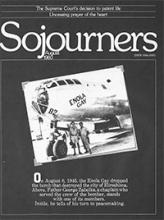At that very hour some Pharisees came, and said to him, "Get away from here, for Herod wants to kill you." And he said to them, "Go and tell that fox, 'Behold, least out demons and perform cures today and tomorrow, and the third day I finish my course. Nevertheless I must go on my way today and tomorrow and the day following; for it cannot be that a prophet should perish away from Jerusalem.' 0 Jerusalem, Jerusalem, killing the prophets and stoning those who are sent to you! How often would I have gathered your children together as a hen gathers her brood under her wings, and you would not! Behold, your house is forsaken."
(Luke 13:31-35)
Christians are always tempted to accept the Pharisees 'belief that Herod is the chief threat to their mission and then change their course to combat his villainy. But instead of focusing on Herod, Jesus insisted that all needed to repent, and journeyed toward Jerusalem where the action was controlled by those who made the greatest claims to represent God.
In the United States today discerning Christians are asking what they can do about the monstrous evil of the nuclear arms race. They struggle with where to direct their efforts, conscious of their limitations. Time, money, and energy must be concentrated. What should be the strategy of the Christian nuclear resistance witness? Are there signs of the times which may give us a clue?
It would be hard to think of a place where support for nuclear armaments is more entrenched, insidious, or determined than in U.S. churches: Opposition to nuclear disarmament in the churches is entrenched in the God-and-country mentality which has characterized American Christianity for two centuries. It is insidiously wrapped in an aura of piety and Bible-believing religiosity. It is determined to prove that America's cause is God's cause and that America, like God, can be Number One.
Read the Full Article

